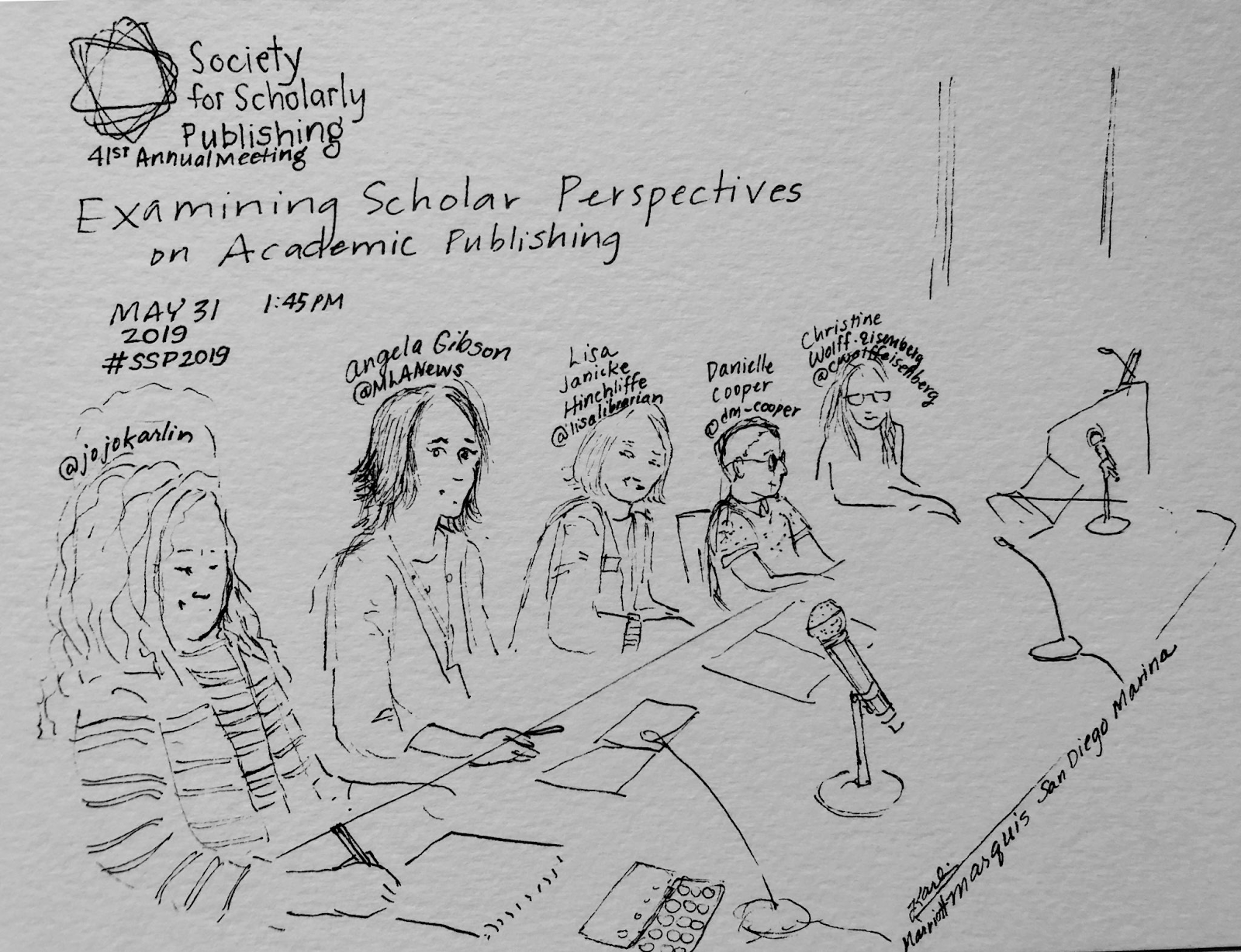Reflections on the Society for Scholarly Publishing 2019 Conference
I had the opportunity last week to attend the Society for Scholarly Publishing 2019 conference, which seeks to not only bring together academic publishers, but also others in higher education, such as scholars and librarians, to discuss the latest developments and trends in the scholarly communication landscape. This goal is reflective of SSP’s ongoing mission to bring together diverse voices, as reflected in the code of conduct, invited keynotes, requirements for diversity in all sessions, and strong encouragement for more guest bloggers on the Scholarly Kitchen.
I particularly noted many opportunities for librarians–though they represented a very small proportion of attendees–to learn from publishers and, perhaps even more importantly, opportunities for librarians to exert influence with publishers in this setting. The conference offers ample opportunities to meet and network with other attendees; for example, there was fairly equal time split between panel sessions and breaks, meals, and other social activities. For those who are looking to spend relatively more time expanding their professional networks and relatively less time hearing from speakers, this may be a welcome format. (Conversely, for those who are expecting and seeking more traditional back-to-back presentations from individual speakers, this format might be less familiar and desirable.)
Through this interactive, relationship-driven format, the conference provides unparalleled access to how publishers are thinking through key issues in scholarly communications. Most notably, many sessions discussed transformative agreements, various open access models, and the implications of Plan S. In a session titled “Flipping Out: Plan S, Read-to-Publish, and Humanities Publishing,” a panel of librarians and publishers discussed emerging funder mandates and publishing strategies with a particular emphasis on the humanities and social sciences; the session both provided a primer for more novice attendees on open access models, levers, and catalysts, as well as a deep dive on the impacts, risks, and rewards for those involved in this area of publishing.
A number of sessions also discussed new technologies and products in the scholarly communication space. For example, many presenters had the opportunity to share their “new and noteworthy products” and attendees had the chance to vote on which product would likely have the “most positive impact in scholarly communications.” (Paper Digest, which uses AI to generate automatic summaries of research papers, handily won.) Another session, “Research Workflows and Interoperable Technology to Improve Reproducible Science,” explored the problematics of the static PDF format and provided examples of how some scholars and publications are more dynamically visualizing their data.
Faculty members and librarians, given their own experiences and familiarity with the practices, perspectives, and needs of scholars, also substantially contributed to discussion throughout the conference. Based on the standing-room-only attendance for the session titled “Want to know how researchers feel about scholarly publishing? Let’s ask them!” which featured perspectives from three scholars in different fields and rank, it was clear that SSP 2019 attendees were craving insights from faculty members directly and those who work closely with them. Scholars discussed the influence of tenure and promotion on their behavior–particularly for early career researchers, skepticism regarding open peer review, and the importance of speed in publishing.
Similarly, in a session I hosted with my colleague Danielle Cooper, “Examining Scholars’ Perspectives on Publishing,” we shared insights from our national faculty survey and qualitative disciplinary deep dives and heard the perspectives of three stakeholders with diverse backgrounds: Lisa Hinchliffe, Professor and Coordinator of Information Literacy and Instruction at the University of Illinois at Urbana-Champaign; Angela Gibson, Director of Scholarly Communication at the Modern Language Association; and Jojo Karlin, Manifold Graduate Fellow and English PhD student at The Graduate Center, City University of New York. We discussed the disconnects between faculty attitudes, behaviors, and intentions as well as the importance of understanding faculty in context–by discipline, institution type, rank, etc. The attendee questions that we received during and after the session indicated a desire to hear more on scholars’ challenges and needs.

Illustration by Jojo Karlin (http://www.jojokarlin.com/)
Librarians, publishers, and faculty members have substantial contributions to make in this conference setting. Emerging funder mandates, shifting publication models, and recent national and international “big deal” journal package cancellations substantially shaped discussions during the conference, and these stakeholders have unique perspectives to share as content providers, purchasers, advocates, and scholars themselves. I look forward to continuing to follow these conversations over the next year leading up to SSP 2020.